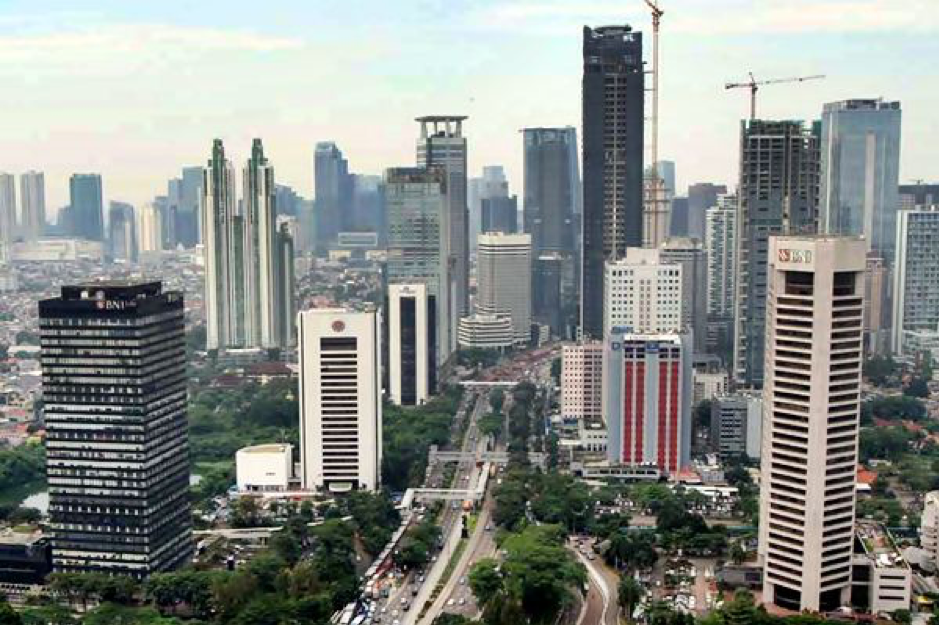Bank Indonesia is confident Indonesia’s economy would continue to grow in the second quarter of this year after the country recorded a 2.97 percent gross domestic product growth in the first, its lowest in almost two decades.
Speaking in an online press conference on Wednesday, central bank governor Perry Warjiyo said with the right policies and stimulus from the government he was confident Indonesia could still post a positive 0.4 percent GDP growth in the next quarter.
“We predict a 0.2 percent growth in the second quarter, 1.2 percent growth in the third quarter and 3.1 percent growth in the fourth quarter,” Perry said.
The forecast is based on the assumption that the peak of the Covid-19 pandemic in Indonesia would last from April until mid-June, and that large-scale social restriction (PSBB) would be in place in approximately 70 percent of Indonesia’s economic areas.
Bank Indonesia (BI) also took into consideration the global economy might slide into recession this year, shrinking by up to 2 percent from last year.
The first-quarter growth missed BI’s initial prediction of 4.4 percent because the central bank had not expected the impact from the steps taken to contain the pandemic, including the PSBB, to affect the national economy immediately in March.
Perry said the rather disappointing growth was largely caused by limitations on public mobility that disrupted many economic sectors.
“According to the BPS [Central Statistics Agency], the government’s Covid-19 mitigation policies have already affected economic activities, including consumption, investment and export-import,” he said.
BI also predicted 6.6–7.1 percent growth in 2021 if the fiscal deficit is kept at 3–4 percent.
Inflation Under Control
BPS also announced a 2.67 percent year-on-year inflation in April – also lower than BI’s prediction of 2.98 percent.
Again, Perry said policies for handling the coronavirus pandemic, such as physical distancing, work from home and PSBB, contributed to the low demand for goods and services that resulted in the low inflation.
For that reason, BI also predicted inflation in Ramadan this year would be lower compared to past figures, and that inflation this year would hover at around 3 percent.
Inflow to Continue Increase
BI also reported an upward trend for foreign capital inflow.
In the first week of April, BI recorded an inflow of Rp 5.73 trillion ($ 378.2 million).
In the next two weeks, BI recorded outflows of Rp 7.98 trillion and Rp 2.41 trillion, respectively.
And in the fourth week of April, it recorded an inflow of Rp 2.42 trillion.
In the first week of May (as of May 5), inflow reached Rp 1.17 trillion.
Perry noted that outflow in March was massive at up to Rp 121.26 trillion, triggered by panic in the global financial market.
Looking at figures in April and May, Perry said the downward trend for outflow and upward trend for inflow might continue.
According to BI data from 2011 to 2019, outflow usually lasted for four months at most in a year at an average of Rp 29.2 trillion per month.
Meanwhile, inflow could last up to 21 months at an average of Rp 229.2 trillion per month.
Consumers Lose Optimism
The central bank also released a report from its survey that shows consumers have lost their optimism during the pandemic.
The Consumer Confidence Index in April fell to 84.8 from 113.8 in March.
A reading below 100 means consumers are pessimistic about economic conditions, while a reading above means consumers’ expectations are rosy.
The survey showed consumers have become pessimistic about the current economic conditions.
The most significant drops were seen in measures that gauged consumers’ perceptions of current income and employment availability amid the pandemic.
Companies have resorted to cut wages to stay afloat while more than 100,000 others had fired of furloughed more than 2 million of their workers since the first Covid-19 cases were announced in Indonesia in early March, data from the Manpower Ministry showed.
On the bright side, consumers remain relatively optimistic about the economic conditions in the next six months. They believe businesses would recover during the period, along with their income.

